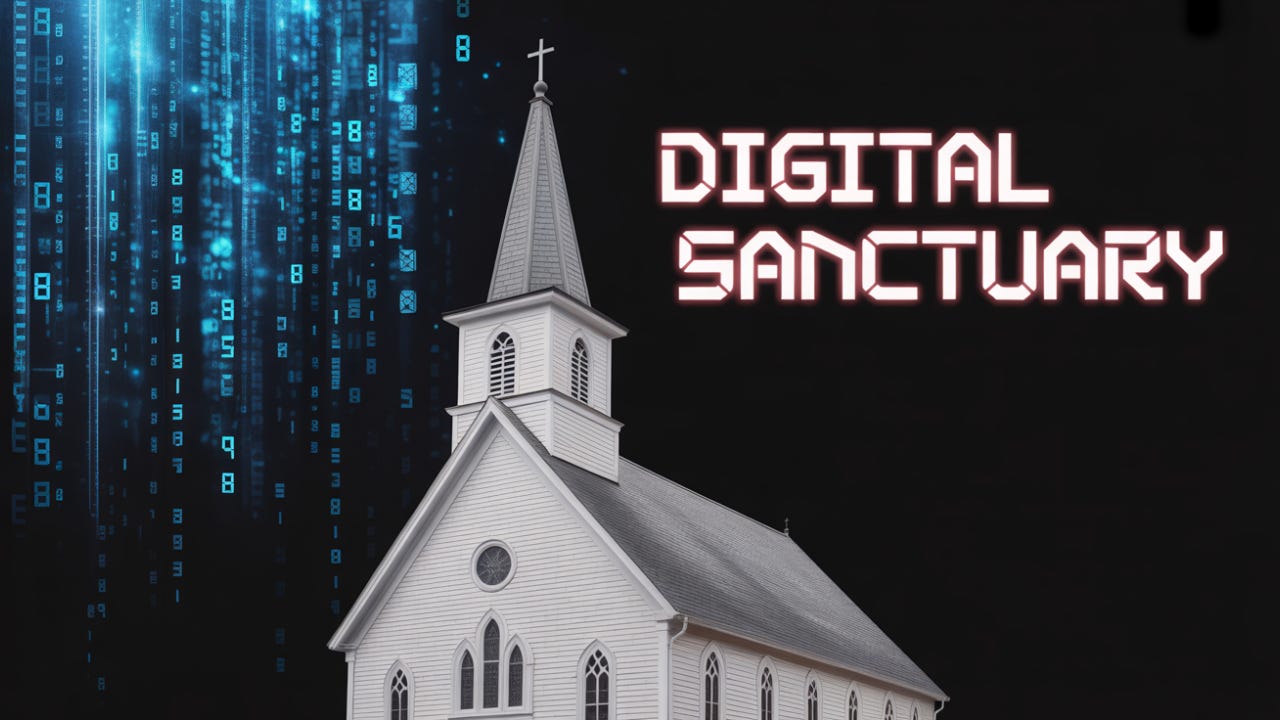⚠️Government Warns Churches | Strengthen Your Cybersecurity Now
Federal agencies have issued a cybersecurity warning to churches, urging them to secure livestreams, donor platforms, and Wi-Fi networks. Here’s what your ministry needs to do now.
We’ve entered a time where churches need to take cybersecurity seriously. Federal agencies are warning about increased threats tied to global tensions, and churches are now on the radar—not just for physical attacks, but digital ones. That means your livestream, donor platforms, church databases, and even Wi-Fi networks could be targets. If those systems aren’t locked down, your ministry is vulnerable.
Most churches operate on trust. But in the cyber world, trust without verification is dangerous. Open networks, shared logins, and outdated software are all low-hanging fruit for attackers. Some are just looking to cause chaos. Others may be looking to exploit churches financially or gather intelligence. Regardless of the motive, the impact is the same: disruption, loss of trust, and possible long-term damage to your ministry.
The Orange County Intelligence Assessment Center (OCIAC) recently released a cybersecurity bulletin specifically aimed at houses of worship. The timing isn’t a coincidence. The bulletin is a reminder that churches are seen as soft targets. But they don’t have to be.
The Reality on the Ground
Let’s break it down through the lens of a typical Sunday morning.
You arrive early to open the building. As the AV team sets up the livestream, the guest Wi-Fi starts flooding with devices. In the admin office, someone pulls up the giving platform. In another room, a volunteer checks the children’s roster using a shared computer. Meanwhile, your building security system connects through the same network as everything else.
This isn’t just busy ministry—it’s a digital footprint wide open to exploitation.
Lock Down Your Network
Churches often leave their digital front doors wide open. Here’s how to close them:
Create separate Wi-Fi networks for staff, guests, and smart devices (like cameras or thermostats).
Eliminate password-free networks entirely. Every access point needs a strong password.
Change default credentials on routers and admin settings.
Restrict admin access to the staff network only, and preferably through a hardwired connection.
Train Your People
Most cyber breaches begin with human error.
Offer quarterly 15-minute briefings on spotting phishing emails, fake texts, and odd requests.
Make it policy: No passwords or sensitive info over text or email—ever.
Require two-factor authentication on key platforms (email, donations, cloud apps).
Update Devices and Software
Neglected devices are easy targets.
Keep all operating systems and applications up to date.
Install professional antivirus and antimalware protection.
Automatically back up your records—use cloud services or encrypted external drives.
Control Access
Access should be limited and logged.
No shared logins. Give everyone their own credentials.
Assign access based on roles. The finance team doesn’t need camera access.
Lock physical areas with sensitive equipment.
Shred paper forms with member or financial data.
Monitor and Respond
Prevention is good. Response is necessary.
Audit account access every quarter.
Watch for failed login attempts and irregular activity.
Draft a response plan. Know who to contact and what systems to shut down if compromised.
Stay Hospitable but Smart
Security and hospitality can co-exist.
Add signs to guest Wi-Fi: “This network is monitored for safety.”
Filter guest traffic to block malicious or inappropriate content.
Be transparent about safety, not secretive.
Resources for Immediate Use
CISA: Protecting Houses of Worship Resources – https://www.cisa.gov/topics/physical-security/protecting-houses-worship/resources
OCIAC Cyber Bulletin –
http://www.ociac.ca.gov/
Data Encryption Explained – https://www.mimecast.com/blog/data-in-transit-vs-motion-vs-rest/
📖 Biblical Perspective
"The prudent see danger and take refuge, but the simple keep going and suffer for it." — Proverbs 22:3
Scripture calls us to wise stewardship—not just of money or facilities, but of all that God entrusts us with, including the digital tools that support ministry. Your livestream may be sharing the Gospel. Your donor platform may be fueling missions. Those systems matter.
Lock them down before someone else exploits them.
Be wise. Be ready. Stay on mission.




I’m a Network Administrator in my day job and this is all great opsec. Honestly, I think it would benefit any church that has a digital footprint and that has enough money to do so, to hire a cybersecurity consultant and do some penetration testing to find and fix vulnerabilities in their setup. I mean, ideally, people in the church who have these skills should be helping as a way of ministering to the Body, but if that’s not an option, get the help you need elsewhere.
Thank you for this post .